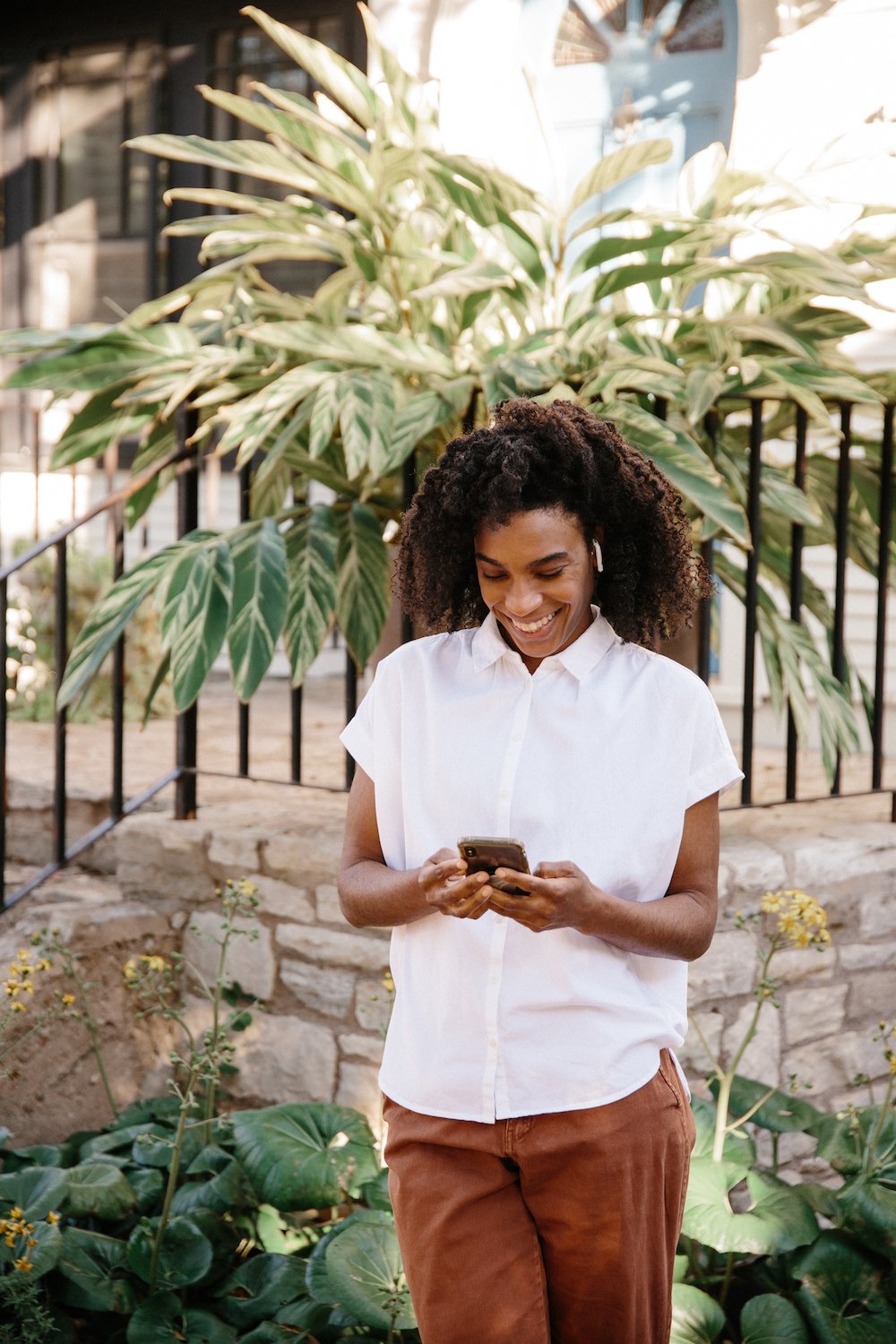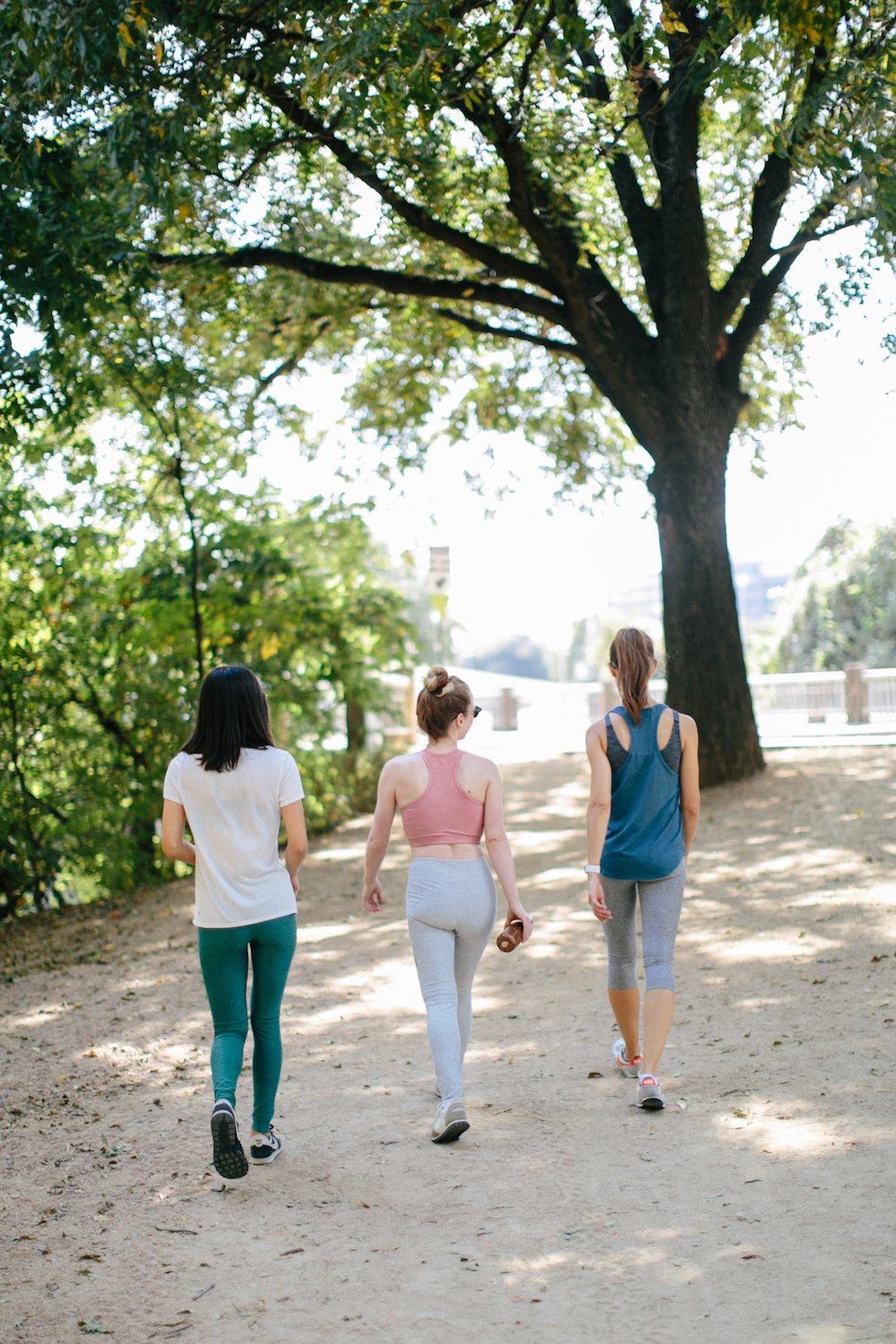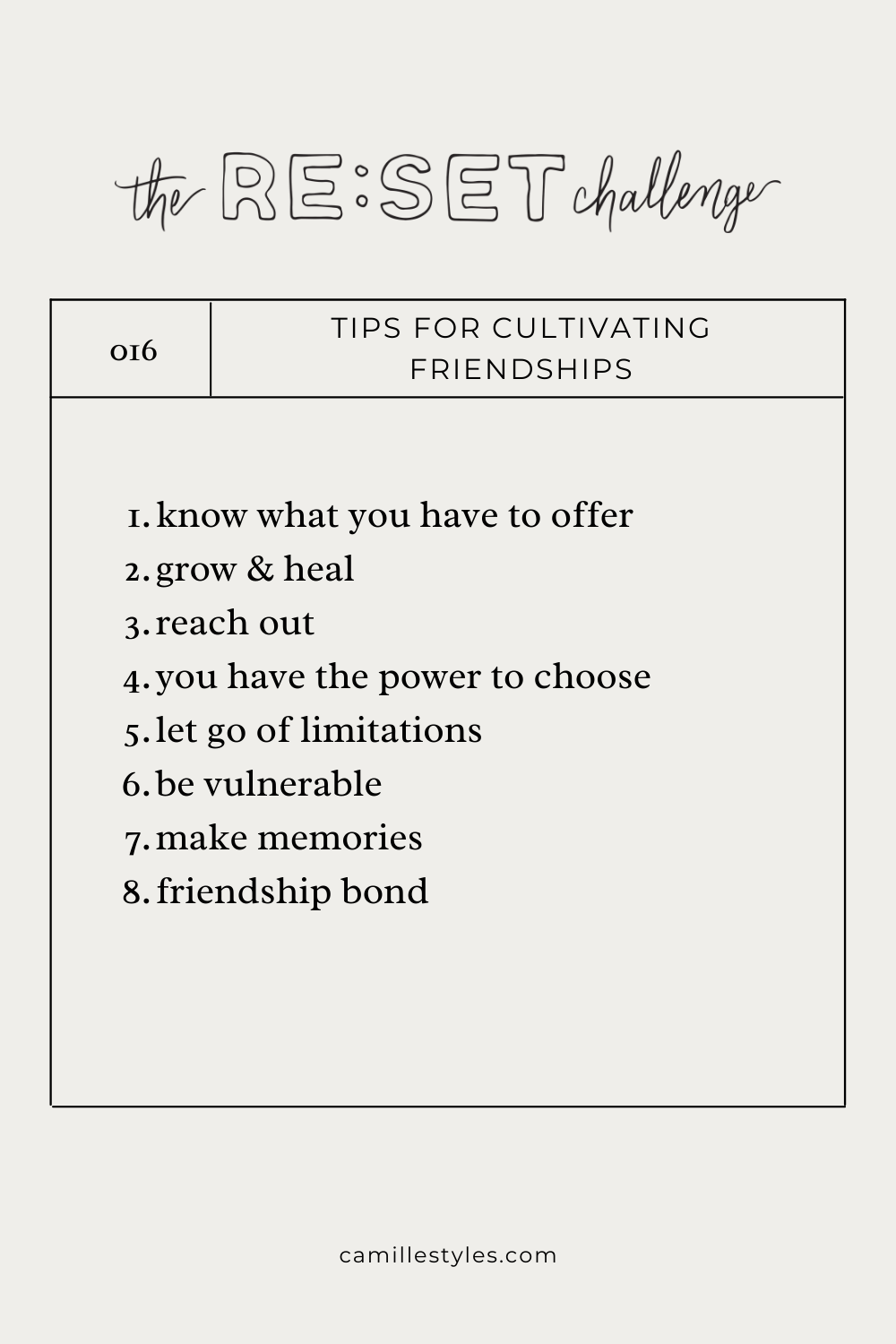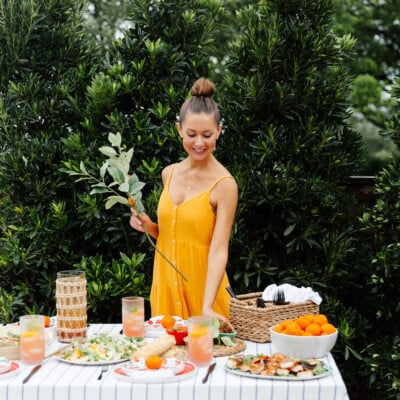There’s way more to wellness than just eating clean, so we’re taking a holistic approach to restoring our spaces, minds, bodies, and hearts in small but powerful ways. Introducing The RE:SET Challenge—a 21-day plan to a healthier and happier you. Click here for the full list. Next up, how to make friends with Dr. Melanie Ross Mills.
“Friendship is born at that moment when one person says to another, ‘What! You too? I thought I was the only one.’”
– C.S. Lewis
Isn’t it weird to think that every new friend we’ve ever made was once a stranger? We can go from knowing virtually nothing about a person to trusting and understanding them fully, sometimes better than family. These friends shape us and ground us, and they quickly become mirrors through which we can see our true selves, too.
Experiencing the aliveness and grounding energy of friendship is one of life’s greatest gifts, but as we get older, our relationships can get more complicated. Friendships can tend to drift or fall apart, and it can be tough to form new connections when life and circumstances get in the way. Why is it so hard to make new friends as an adult?
I miss the days when “let’s be friends” was all it took. In my adult life, it hasn’t been as easy to forge friendships as deep and loyal as those from my childhood and college days. Whether it’s age, beliefs, backgrounds, or other barriers, we all have limiting beliefs when it comes to putting ourselves out there and genuinely connecting with others. As an introvert and an innately private person, I worry about being an inconvenience in new friendships. I fear potential close friends are too busy with their jobs, families, kids, and hobbies and won’t have time or energy for me too. Plus, getting to know someone deeply takes time, and it’s hard to feel a true human connection when sometimes your only option is through a screen.
“We are created to connect and once we experience authentic exchanges lives can literally be transformed.” — Dr. Melanie Ross Mills
Our primal need to connect is stronger now more than ever, but we’re living in a time when it can feel virtually impossible to spark new relationships. Dr. Melanie Ross Mills is a friendship and relationship expert and the author of The Friendship Bond. She holds a Masters and Doctorate in Temperament Therapy, which basically means she’s an expert in understanding how people behave and interact with one another in the world. “I love helping people learn about how they are wired and encouraging them to cultivate healthy relationships,” Dr. Mills says. “My desire is that we all (including myself) discover healthy ways of relating to one another as we learn more about ourselves, our friendships, and the relationships in our lives.”
Plus, not only do friendships lead to a fuller and richer life, studies show a connection between relationships and longevity. Strong personal connections actually make you live longer, and without them, the risk to your lifespan is similar to smoking 15 cigarettes a day. Dr. Mills changes lives by equipping people with the tools to feel seen and experience genuine relationships. We tapped her knowledge for some tips on how to make new friends and keep existing ones around for good.

What role do friendships play in our overall happiness? How much closeness do we need?
Friendships play a very large role in our lives. Although they cannot make us a happy person, they can bring us happiness and contribute to our overall wellness. Healthy friendships can literally change our lives when they offer security, we feel seen and heard and experience authentic love. As far as closeness, I feel that is relative to each individual. Some will need more close friends than others, but we all need some close friendships to experience the fullness of life.
What are your biggest tips for cultivating new friendships?
Know what you have to offer.
Identify and own what you bring to the table in friendship. You cannot offer what you do not first possess. Once you know what you have to offer, you are able to offer with greater awareness and confidence your strengths (i.e. playfulness, joy, wisdom, helping, good listener, caring, fun-loving, etc.). Additionally, you will be able to identify with more clarity what the new friends bring to the table. For example; If you know that you offer a listening ear- you recognize more easily the new friends that listen well (or talk too much- lol).
Grow & heal.
The key to healthier friendship foundations is to make sure you aren’t carrying unhealthy habits or old hurts from past friendships (to the best of your ability) so that you can offer healthy ways of connecting and bonding. For example, when you have walls up because of past hurts, you can close off receiving love and connection from the new friends coming your way. The healthier you are, the healthier you will attract.
Reach out.
Put yourself out there sister! Place yourself in situations that encourage connection and highlight connecting points (i.e. volunteer work, personal growth groups, Starbuck coffee addiction support groups (lol), mom blogs, etc.). In an organic way, engage through conversation. As time and nature allow, pay attention to those that you are drawn to and reach out to grab coffee or lunch. If the other person is receptive, yay! It’s a date! If not, that is ok, keep on moving. (With COVID, make sure to follow social-distancing measures as they apply to these tips.)
You have the power to choose.
You have the option to decide whether or not you would like to continue “friend dating.” I think sometimes we feel as if we need to settle in friendship because there is not anything “better” out there (just like in dating). Then we find that we have settled in friendship with someone that is toxic, bringing us down, using us, untrustworthy, hurtful, etc. You do not have to settle or compromise. Once you have met some new people, experienced how your chemistry and character blend, then you can continue pursuing this new friendship or keep moving forward and open up space in your life for more new friends. If that is the case, repeat #3.
Let go of limitations.
Let go of preconceived judgments or limitations you might have placed on meeting new friends. Friends will come in every shape, size, background, demographic, age range, and all walks of life. You will limit your options if you limit your “friendship pool.” Make an effort, be available, be wise, be alert, and get excited! Getting to know new friends is a beautiful thing.
Be vulnerable.
Be open, be open, be open, be open. You might think you are open and vulnerable, but you could be more closed off than you might realize. Having walls up is different from being protective of your heart. It is healthy to protect your heart in ways that allow for trust to develop, but walls prevent friends from getting to know the real you.
Make memories.
Once you have begun the reciprocating process with your new friend, together, make an effort to create memories. Share experiences that will bond and connect your hearts. Exchange thoughts and ideas with one another. Push yourselves as people together to become more, experience more of life together. Respect boundaries. Get to know one another’s family and friends. Experience reciprocation. Making memories, sharing thoughts, feelings, exchanging hope and dreams, and brings us closer.
Friendship bond.
As time progresses and your new friend is becoming a gift to your life and vice versa, continue to invest in the friendship. Let them know that you care, appreciate, and value them. Work on not taking them for granted. Learn their love language. Honor their space. Respect their time. Extend grace for imperfections. Protect their secrets and private matters. Keep their best interests in mind. Make this new friendship easy, life-giving, fun, and real.

What does it take to keep friendships alive over time?
Friendships are a choice. You invest in the things that matter to you, to the degree that they matter. Some are happy with surface-level exchanges that do not require much time, emotional, or physical investment; while others crave to be known and want to know others on a much deeper level. You will have surface friendships in your life because you can’t go deep with everyone, nor should you. But, there will be a few friends that you really cherish and want in your life for the long haul. These are the friendships that you want to keep “extra alive” in your life.
I challenge you to self-examine what types of friendships you need and want in your life, as well as, what type of friend you would like to be to others.
If you would like lifelong friendships that stay alive, then you will respond accordingly by making the effort needed to connect and grow. Granted, there will be seasons in your life that you are not given the time or energy to pour into these friendships like you would be during other seasons (i.e. new job, moving to a new city, baby, loss of a loved one, divorce, etc.). That is when having understanding friends in your life is a gift.
The friends that you cherish are the friends that you seek to keep alive, whether that is through a phone call, girls’ weekend, once a month coffee, snail-mail greeting card. However, you want to connect is a great way to keep them alive (loving them through their love language is always a great idea too).

What are some ways to build closeness and intimacy in our friendships?
If you go back to the making new friend’s question, you will see some of these steps in that answer. Here are some other steps you can take when wanting to build depth within friendships.
- Allow for individuality instead of being possessive, territorial, controlling.
- Seek to experience oneness over division.
- Encourage one another to bring out your best qualities.
- Accept one another for who you are, not who you want them to be.
- Invite growth into your friendship by spurring one another on.
- Be vulnerable and open with your mind, will, and emotions.
- Speak the truth in love.
- Take a genuine interest in one another’s lives.
- Give and receive, give and receive, give and receive.
- Encourage interdependence over codependence or control.
- Don’t play mind games, be passive-aggressive, spiteful, or harmful.
For more of Melanie’s tips, check out her book The Friendship Bond.







